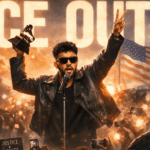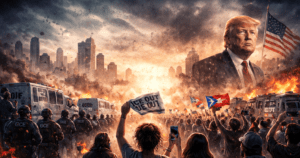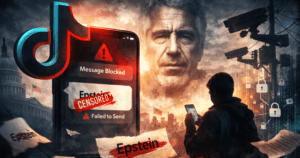The US State Department has canceled the visas of many foreign nationals following social media statements that appeared to celebrate the death of conservative commentator Charlie Kirk. The measure represents the latest escalation in the Trump administration’s harsh stance against “far-left extremism.”
Officials announced late Tuesday that six people from Argentina, Brazil, Mexico, Germany, Paraguay, and South Africa had their admission credentials revoked after publicly supporting Kirk’s murder.
In a statement released on X, the State Department stated, “The United States has no obligation to host foreigners who wish death on Americans,” and that the review of other visa holders is ongoing.
Visa Cancellations and Wider Immigration Crackdown
While the department did not specify which visa categories were affected, people familiar with the situation said the individuals were found through increased social media monitoring efforts.
The cancellations came amid a larger immigration tightening since Donald Trump took office in January. According to reports, thousands of student and work visas have been withdrawn as part of the administration’s new vetting mechanism.
“The State Department continues to identify visa holders who celebrated the heinous assassination of Charlie Kirk,” the agency’s press release said.
Global Reaction to Kirk’s Killing
Charlie Kirk, the founder of the conservative youth organization Turning Point USA, was shot and killed in Utah last month. Authorities have charged Tyler Robinson, 22, with aggravated murder, claiming that his acts were motivated by Kirk’s political activities.
The incident has sparked heated debate across the United States, polarizing public opinion on free speech and political violence. Some people who commented online on Kirk’s death have experienced professional consequences, such as suspensions and terminations.
One of the now-revoked posts, reportedly from a German national, stated, “When fascists die, democrats don’t complain.” Another commenter from Argentina criticized compassion for Kirk as “unwarranted for someone who spread racist and misogynistic rhetoric.”
Trump Honors Kirk, Condemns “Radical Left Violence”
Earlier on Tuesday, President Trump posthumously gave Kirk the Presidential Medal of Freedom, describing him as a “American hero” and a “martyr for free speech.” The event was held in the White House Rose Garden, where Kirk’s widow, Erika Kirk, accepted the honor.
“Especially in the wake of Charlie’s assassination,” he stated, “our country must have absolutely no tolerance for radical left violence, extremism, or terror.”
Treasury Secretary Scott Bessent later told The Charlie Kirk Show that his government was looking into organizations “operating within U.S. borders” that could be linked to the crime. “Charlie’s death is like a domestic 9/11,” he told me. “It has awakened the nation to the threats he warned about.”
Free Speech and Retribution Debates Intensify
Critics worry that the State Department’s visa actions risk setting a precedent that punishes any internet expression, no matter how objectionable. Supporters, however, argue that the sanctions convey a clear message that glorifying political violence has repercussions.
As the investigation into Kirk’s death proceeds, both the administration and its opponents look entrenched, with one blaming national security and the other protecting free speech.
For the time being, Washington’s message is clear: the United States is strengthening its borders not only against physical but also ideological dangers.
















